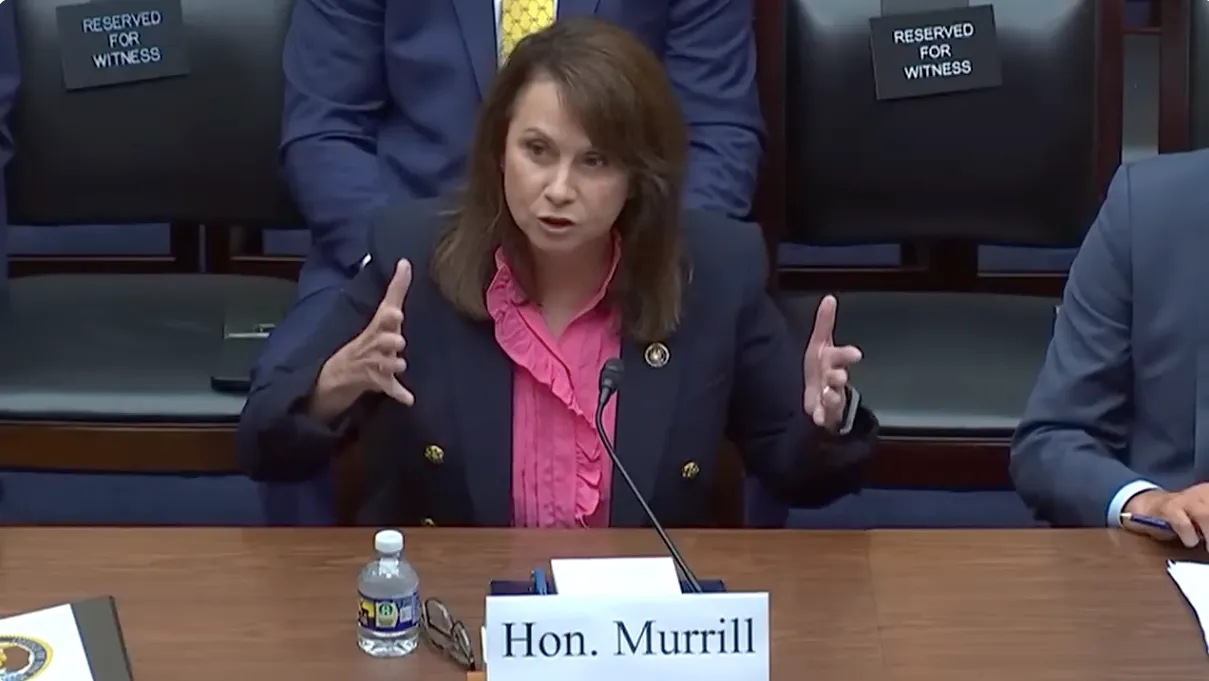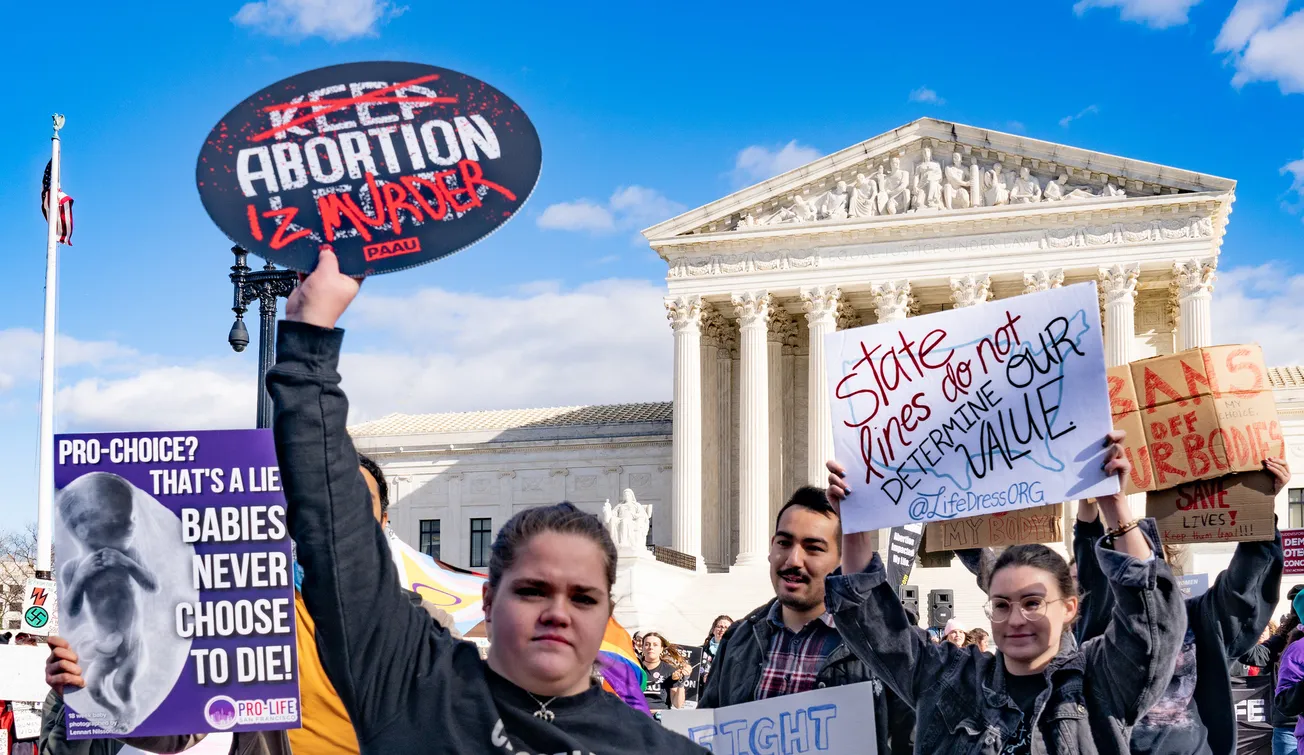Table of Contents
Note: We inadvertently sent last week’s roundup to the wrong email list! If you missed the October 27 edition, check it out here.
Welcome to the latest edition of our weekly roundup. Every Monday, we’ll send you a summary of the biggest stories about bodily autonomy. We’ll also include links to pieces that Garnet or Susan have published.
If you’d prefer to receive a single email every week, you can do that—we love autonomy. You can manage your subscriptions by navigating to the site, clicking on “Account” in the upper right, then under “Emails,” select “Manage.” You can toggle off “Autonomy News” to receive only the roundup, or vice versa.
Let’s dive in.
On Autonomy News
Autonomy News launched just five months ago, and since then, we’ve led the way in fearless reporting on the reproductive rights and justice beat. We’ve been first on a long list of stories, and were recently cited in federal court. We’ve done all that as a team of just two people working part-time. Now, we need your help to continue growing.

Can’t donate now but want to support our campaign? Share it on Bluesky or Instagram, or better yet, directly with friends!
Federal news
A federal district court in Hawaii ruled that the Food and Drug Administration violated the law when it maintained medically unnecessary restrictions on the abortion pill mifepristone. This case—which was filed by the American Civil Liberties Union on behalf of a family doctor and several medical associations—dates all the way back to 2017, well before the current conservative legal attacks on mifepristone began. The judge stopped short of ordering the FDA to lift restrictions, but she did direct the agency to review the substantial peer-reviewed evidence supporting mifepristone’s safety. The Trump administration is already engaged in its own “review,” but it was spurred by a junk science paper and has a predetermined outcome in mind.
On the subject of legal attacks on mifepristone, the lawsuit seeking to drastically roll back access to the drug has officially been transferred from a federal court in Texas to one in Missouri. This is the case that was originally filed by anti-abortion doctors in 2022, but was resurrected by the attorneys general of Idaho, Kansas, and Missouri after the Supreme Court ruled the doctors didn’t have standing to sue. Most recently, Texas and Florida had also tried to intervene in the case, in an apparent attempt to keep it in the court of Trump-appointed, Comstock Act-loving Judge Matthew Kacsmaryk. Instead, Kacsmaryk denied that motion and passed on the case to another Trump appointee in Missouri, Cristian Stevens.
Remember the $9.7 million in birth control intended for international aid programs that the Trump administration wanted to destroy—and even claimed to have already destroyed? That plan was thwarted by local regulations barring the incineration of usable medical devices in Belgium, where the contraceptives are being stored in warehouses. Now, experts worry the administration is simply trying to run down the clock, leaving the birth control in warehouses until it expires.
Maine Family Planning, the largest network of sexual and reproductive health clinics in Maine, has officially ended its primary care program, which operated at three clinics and served about 800 patients. MFP is one of the independent abortion providers affected by the GOP budget law provision intended to “defund” Planned Parenthood, and they blamed the law for the change.
State news
A state court judge in New York dismissed the first legal challenge to an abortion “shield law”—though the dispute is far from over. In July, Texas Attorney General Ken Paxton filed a lawsuit against a New York county clerk for refusing to accept or enforce a $113,000 civil judgement against a New York physician who Paxton claims prescribed abortion pills to a Texas resident. The judge said the care Dr. Maggie Carpenter provided is legal in New York, and that she is protected under the shield law from out-of-state legal actions. Paxton is likely to appeal, especially since he’s argued that New York’s law violates the Constitution’s Full Faith and Credit Clause, which says states need to respect each other’s statutes. It’s just a matter of time until this moves to federal court.
Texas Attorney General Ken Paxton is suing Tylenol maker Kenvue and its former parent company Johnson & Johnson, alleging that the pharmaceutical companies hid evidence that Tylenol’s active ingredient, acetaminophen, can cause autism and ADHD in children when taken during pregnancy. (There is no good evidence that acetaminophen use during pregnancy directly causes these conditions.) Many people have been wondering why Kenvue hadn’t yet sued the Trump administration over its misleading claims about Tylenol, and a potential answer has emerged: News broke today that consumer products company Kimberly-Clark is set to acquire Kenvue in a $48.7 billion deal that will need approval from the Federal Trade Commission because of the immense size of both companies.
Fresh off news that it will resume abortion care, Planned Parenthood of Wisconsin is set to close two health centers and has laid off multiple clinicians and patient navigators, according to its workers union. PPWI will shutter clinics in Wisconsin Rapids and West Bend, locations that did not provide abortions. The latter is already listed as closed, while the former is still scheduling appointments. A third clinic in La Crosse will reduce its hours starting in December.
In early 2023, GenBioPro, the maker of a generic form of mifepristone, sued West Virginia, arguing that its abortion ban conflicts with the FDA’s approval of medication abortion. Unfortunately, a federal district court ruled against GenBioPro, and the Fourth Circuit Court of Appeals upheld that decision. But legal scholars say this argument—that FDA approval of medication abortion should “preempt,” or override, state abortion bans—isn’t dead. In fact, the Fourth Circuit will soon hear a similar challenge to North Carolina’s abortion restrictions, and experts believe the arguments in this case are stronger and could bring a different outcome.
The Alaska Supreme Court is considering whether to reinstate a law dating back to 1970 that says only physicians can perform abortions. Planned Parenthood Great Northwest, Hawaii, Alaska, Indiana, Kentucky (PPGNHAIK) sued in 2019, arguing that advance practice providers like nurse practitioners are well-equipped to provide this care and that the law limits access to abortion. A judge has allowed APPs to provide medication abortions since 2021, and formally struck down the law last year, allowing them to provide procedural abortions as well. But the state appealed, and the Supreme Court heard arguments on Wednesday. It’s not clear when it will issue a decision.
An anti-abortion group in Michigan is appealing a federal judge’s decision to dismiss their lawsuit against the state’s successful 2022 constitutional amendment codifying reproductive freedom. The plaintiffs, including Right to Life of Michigan, said the amendment violated their parental rights, but a district court judge disagreed. They’re now going to the Sixth Circuit Court of Appeals for relief, arguing that the amendment threatens to end parental consent for most minors seeking abortions.
Assaults on queer people
On Friday, the Supreme Court will consider whether to hear a long-shot appeal that explicitly asks the justices to overturn the 2015 marriage equality ruling, Obergefell v. Hodges. The appeal was filed by former Kentucky clerk Kim Davis, who is somehow still suing over the fact that she was ordered to pay a fine for refusing to issue a marriage license to a gay couple on religious grounds. While her case is exceptionally weak, that doesn’t mean Obergefell is safe. Justice Clarence Thomas called for the Supreme Court to reconsider Obergefell in his concurring opinion in Dobbs v. Jackson Women’s Health Organization, and this summer, delegates to the Southern Baptist Convention voted to advocate for the ruling to be overturned.
The Trump administration is set to propose a rule that, if allowed to take effect, would ban Medicaid reimbursement of gender-affirming care for patients under 18—and ban coverage under the Children's Health Insurance Program (CHIP) for patients under age 19. This would be the equivalent of the anti-abortion Hyde Amendment, but for trans youth. And the Department of Health and Human Services might go even further: It has drafted a second rule that would block all Medicare and Medicaid funding for hospitals that provide youth gender-affirming care. These rules would make it nearly impossible for young people to get this care. However, nothing will change immediately due to the steps involved in the federal rulemaking process. Whenever the rules are released, there will be a lengthy public comment period before the final rules are issued, and lawsuits will likely be filed to block implementation.
Quick hits
- Abortion access is on the ballot in four states this week—New Jersey, Pennsylvania, Virginia and, yes, California, as Susan explained in Democracy Docket.
- One thing bringing Democratic Socialist New York City mayoral candidate Zohran Mamdani and centrist (at best) Democratic Governor Kathy Hochul together? Affordable childcare.
- A new report from If/When/How documents how “state-mandated parental notification laws in six US states threaten young people’s health and safety and undermine their human rights.”
- A man in Florida was found guilty of murdering his pregnant 18-year-old girlfriend in 2022 after she refused to have an abortion. The jury recommended the death penalty.
- The National Latina Institute for Reproductive Justice’s 2025 Medicaid policy brief finds that one in three Latines rely on Medicaid health insurance, and that 59 percent of births to Latina mothers nationwide are covered by the program.
Actual good news
A federal judge in Washington state quashed a subpoena sent by the Trump administration to QueerDoc, a comprehensive telehealth clinic for queer and trans people. QueerDoc was one of many gender-affirming care providers that received subpoenas from the Trump Department of Justice. The judge said that “when a federal agency issues a subpoena not to investigate legal violations but to intimidate and coerce providers into abandoning lawful medical care, it exceeds its legitimate authority and abuses the judicial process.”
Palate cleanser
Legally, you must have the sound on for this.
@kels__on.smoko A mini jungle for her daily slow walks **For licensing or usage, contact licensing@viralhog.com** #rescuedog #slowmona #trancing #plants ♬ Welcome to Jurassic Park - Philip Green
Follow Autonomy News on Instagram, Bluesky, TikTok, and LinkedIn.









